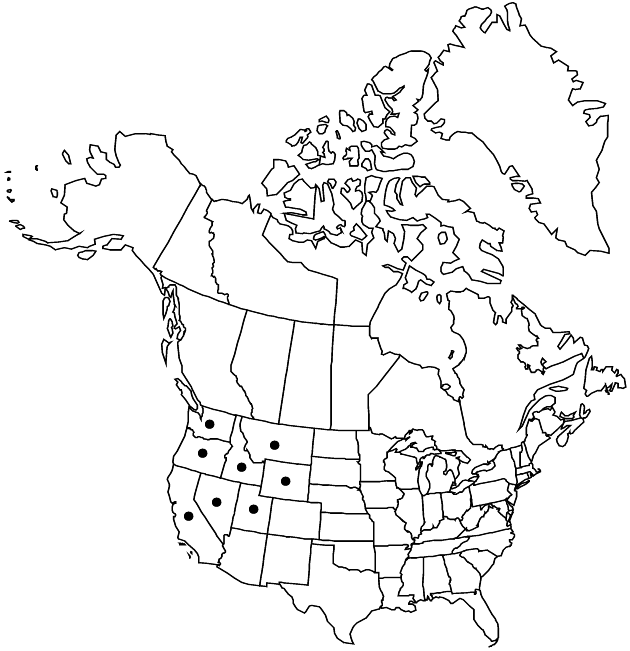Difference between revisions of "Rudbeckia occidentalis"
Trans. Amer. Philos. Soc., n. s. 7: 355. 1840.
FNA>Volume Importer |
imported>Volume Importer |
||
| (2 intermediate revisions by 2 users not shown) | |||
| Line 8: | Line 8: | ||
}} | }} | ||
|common_names=Western coneflower | |common_names=Western coneflower | ||
| + | |special_status={{Treatment/ID/Special_status | ||
| + | |code=E | ||
| + | |label=Endemic | ||
| + | }} | ||
|basionyms= | |basionyms= | ||
|synonyms= | |synonyms= | ||
| Line 46: | Line 50: | ||
|publication title=Trans. Amer. Philos. Soc., n. s. | |publication title=Trans. Amer. Philos. Soc., n. s. | ||
|publication year=1840 | |publication year=1840 | ||
| − | |special status= | + | |special status=Endemic |
| − | |source xml=https:// | + | |source xml=https://bitbucket.org/aafc-mbb/fna-data-curation/src/2e0870ddd59836b60bcf96646a41e87ea5a5943a/coarse_grained_fna_xml/V19-20-21/V21_105.xml |
|tribe=Asteraceae tribe Heliantheae | |tribe=Asteraceae tribe Heliantheae | ||
|subtribe=Asteraceae (tribe Heliantheae) subtribe Rudbeckiinae | |subtribe=Asteraceae (tribe Heliantheae) subtribe Rudbeckiinae | ||
Latest revision as of 20:07, 5 November 2020
Perennials, to 200 cm (rhizomatous, roots fibrous). Leaves: green, blades broadly ovate to lanceolate (rarely lobed), herbaceous, bases attenuate to cuneate or broadly rounded, ultimate margins entire or serrate, apices acute, faces sparsely to densely hairy (mostly adaxially), rarely glabrous; basal petiolate, 12–30 × 3–9 cm; cauline petiolate or sessile, 5–25 × 2–10 cm. Heads in ± corymbiform arrays. Phyllaries to 3 cm (margins mostly ciliate, hairy, especially abaxially). Receptacles ovoid to columnar; paleae (proximally light brown, distally green, becoming maroon with age) 5–7 mm, apices acute to acuminate, abaxial tips densely hairy. Ray florets 0. Discs 17–45 × 12–20 mm. Disc florets 200–500+; corollas yellowish green proximally, blackish maroon distally, 4–6 mm; style branches ca. 1.2 mm, apices acute to rounded. Cypselae 3.5–5 mm; pappi coroniform, to 1.2 mm. 2n = 36.
Phenology: Flowering summer–fall.
Habitat: Open meadows, streamsides, seeps
Elevation: 1000–2800 m
Distribution

Calif., Idaho, Mont., Nev., Oreg., Utah, Wash., Wyo.
Discussion
Rudbeckia occidentalis is sometimes grown as an ornamental.
Selected References
None.